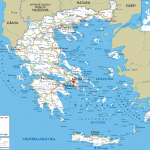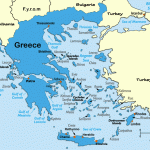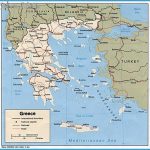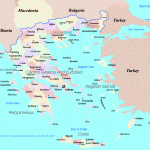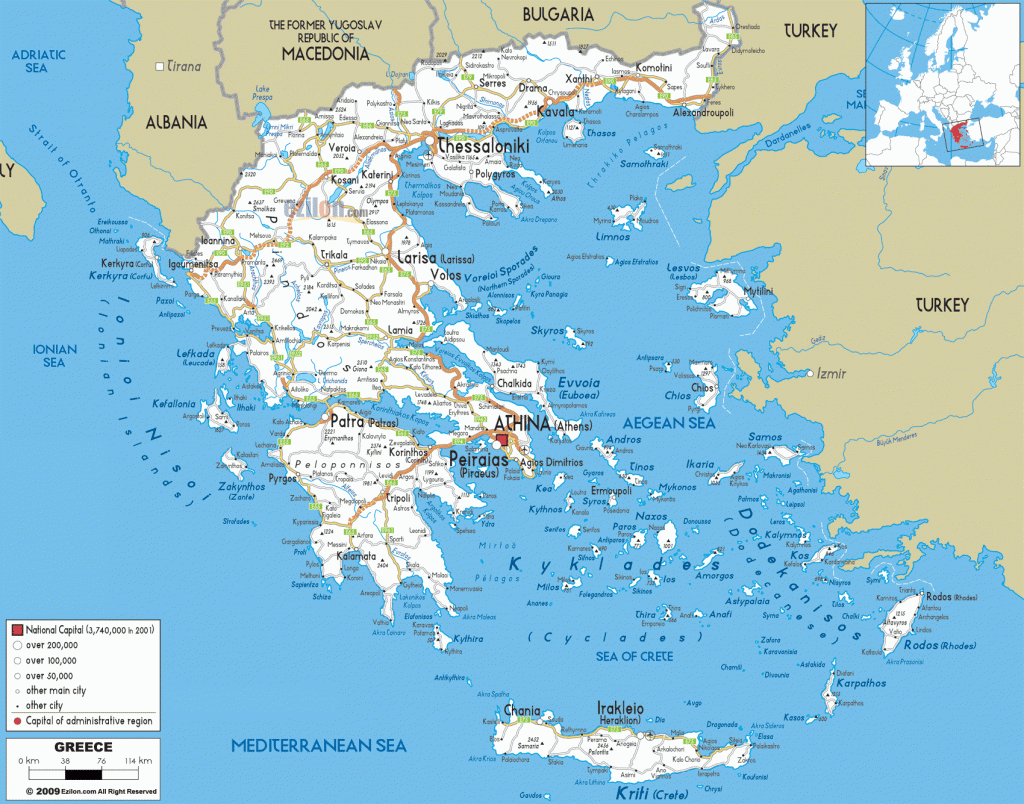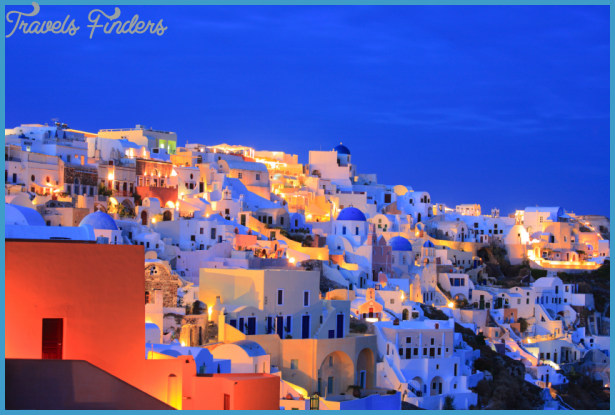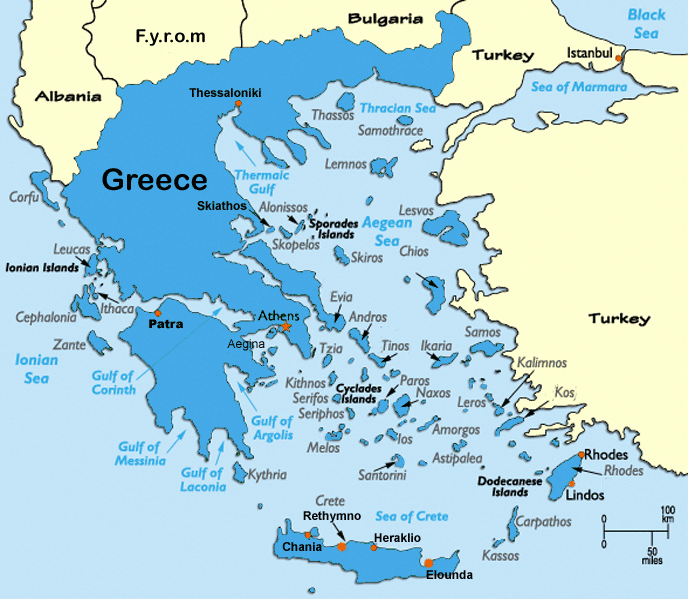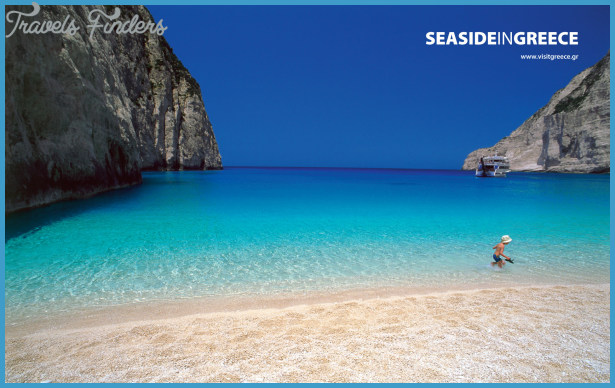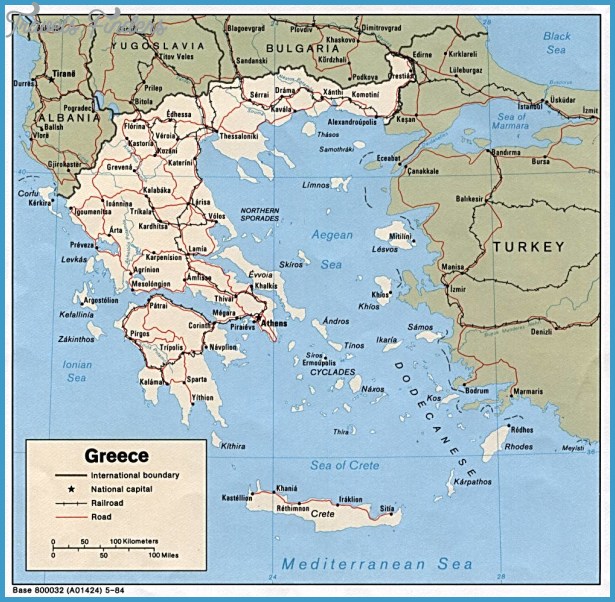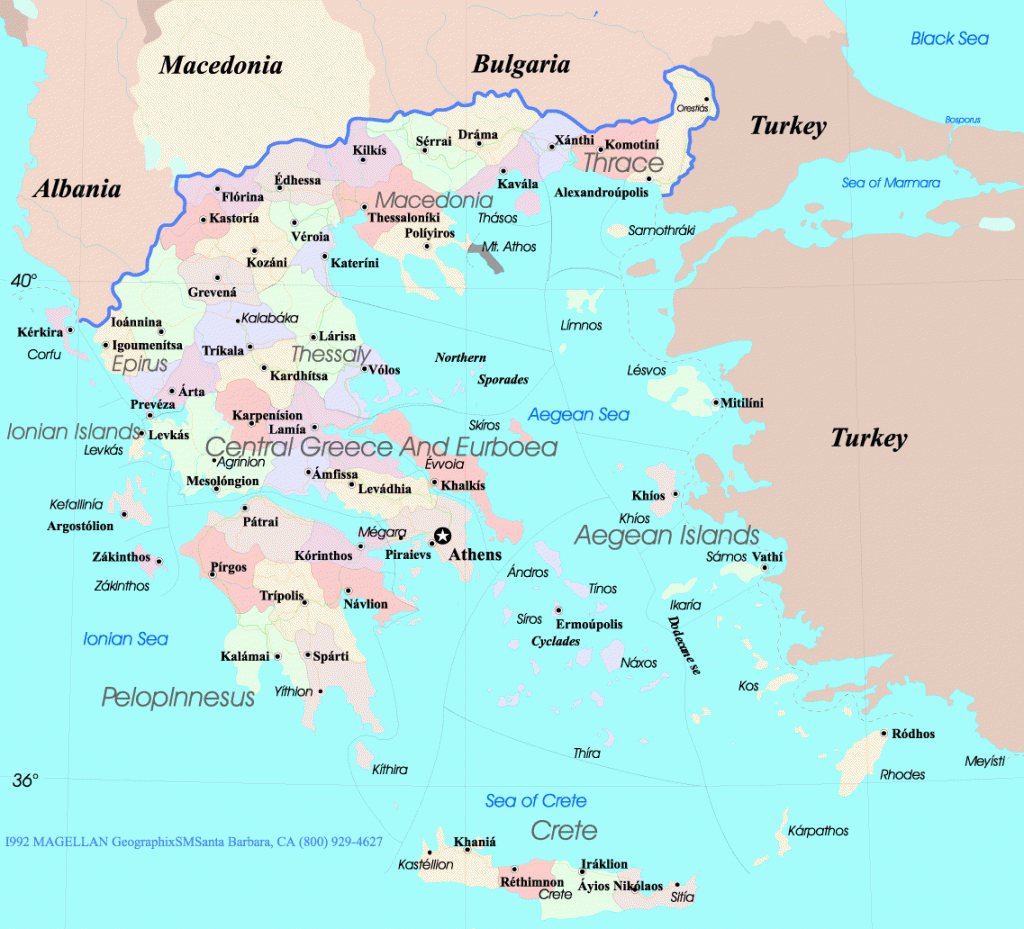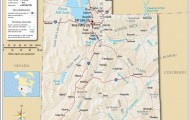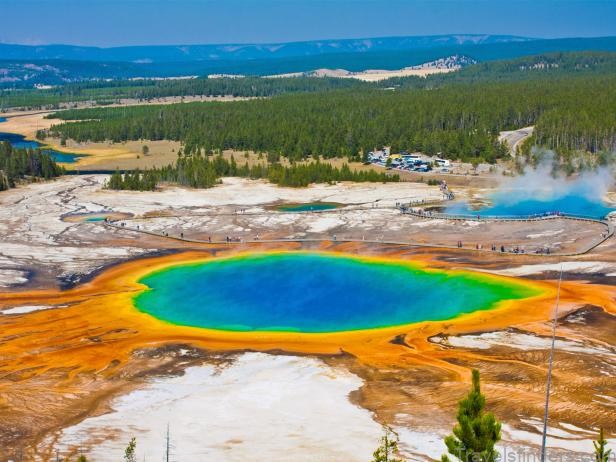GREECE
A land where sacred monasteries are mountainside fixtures, three-hour seaside siestas are standard issue, and dancing on tables until daybreak is a summer rite Greece’s treasures are impossibly varied. Much of the history of the Western world owes its character to the philosophical, literary, artistic, and athletic mastery of the ancient Greeks. Schoolkids still dream of Hercules and Medusa, only to long later for Greece’s island beaches and its gorgeous natural landscape, once the playground of a pantheon of gods. The all-encompassing Greek lifestyle is a mix of high speed traveling and sun-inspired lounging: Old men hold lively debates in town plateias, mopeds skid through the streets around the clock, and unpredictable schedules force a go-with-the-flow approach to life.
THE RISE OF THE CITY-STATE. In the aftermath of the Dorian invasion of Mycenaen cities in 1000 BC, the polis, or city-state, rose as the major Greek political structure. The heart of the city was the acropolis, a fortified citadel and religious center atop the highest point, and the agora, the marketplace and the center of commercial and social life. During the Persian Wars (490-477 BC), the Greeks overcame overwhelming odds to defeat the Persians in the legendary battles at Marathon, Salamis, and Plataea. The victories ushered in a period of unprecedented prosperity and artistic, commercial, and political success.
Visit the ancient and then take a ferry from Patras to the Athenian Agora, aril! run a lap in the Panathenaic Olympic Stadium, home of the Summer 2004 Olympics (529).
ONE WEEK Begin your week with a sojourn in Athens (3 days). Move on to Corinth to wander through the 6th-cen-tury Temple of Apollo (1 day; 540).
Sprint to Olympia to see where the games began-check out the immense Temple of Zeus (1 day; 536). Take the ferry to Corfu (1 day; 545) and then soak up Byzantine history in Thessaloniki (1 day; 540). Ask the Oracle at Delphi how to top off your week (1 day; 535) immortalized beaches of Corfu (2 days). Back on the mainland, wander the streets of Thessaloniki (2 days), and then climb to the cliffside monasteries of Meteora (1 day, 545). Be sure to consult the gods at Mount Olympus (1 day; 544) and the Oracle of Delphi (1 day). A ferry from Athens to Crete (3 days; 551) will let you discover Europe’s largest gorge. Seek respite on Santorini (1 day; 551), debauchery on los (1 day; 550), and suntanning on Mykonos (1 day; 548). Finally, repent at the famous temples on Delos (1 day; 549).
CLASSICAL GREECE. At the end of the Persian Wars, Athens established itself as the head of the Delian League, an organization of Greek city-states formed to defend against Persian aggression that actually acted as an Athenian empire. Athens, which prided itself in its commercial, democratic, and cultural achievements, rivaled the agricultural, oligarchical, and martial Sparta in controlling Greece. The competition erupted into violence during the Peloponnesian War (431-404 BC), which ended in total defeat for Athens.
MACEDONIAN RULE. The period after the Peloponnesian War was marked by a gradual devolution of city-state power. Macedonia’s King Philip seized control in 338 BC. After Philip’s assassination in 336 BC, his 20-year-old son, Alexander, later known as Alexander the Great, took the throne. Alexander ruled Greece with an iron fist and consolidated control of his father’s empire. By the time of his sudden death at 33, he ruled Egypt and the entire Persian Empire and had spread Greek culture and language throughout the eastern Mediterranean. The dissolution of Alexander’s empire restored a measure of independence to the Greek city-states, but self-rule did not last long. By 27 BC, the upstart Roman Empire had conquered Greece and incorporated it into the province of Achaea.
ROMAN EMPIRE: EAST SIDE. As Rome slowly declined, the empire became dominated by competing halves: An eastern half, centered in Anatolia, the Levant, and Greece, and a western half, centered at Rome. The unusual political arrangement ended in a scramble for power, finally won by Constantine in AD 312, who later legalized Christianity within his empire. He gave the Roman Empire a new capital in 324 by founding Constantinople, built over the ancient city of Byzantium. While Western Europe was overrun by barbarian invaders, the eastern Byzantine Empire became a center of learning, trade, and influence, unrivaled in its time.
NETTLESOME NEIGHBORS. During the 6th century, Emperor Justinian’s battles against the Sassanians of Persia overstretched the empire’s strength. Power waned under the force of constant raids by Slavs, Mongols, and Avars, and in many areas of the mainland and Peloponnese, Greek culture was wiped out entirely. From 1200 to 1400, the Byzantine Empire was plagued by Norman and Venetian crusaders, who conquered and looted Constantinople in 1204 and imposed western Catholic culture upon the city. On May 29, 1453, the Ottoman Turks overran the much-reduced city, renaming it istanbul. The Muslim Turkish rulers treated their Greek subjects as a millet a separate community ruled by its own religious leaders. The Orthodox Greek church became the moderator of culture and tradition and the foundation of Greek autonomy. By the 19th century, Greeks were pushing for complete independence from the empire.
GREEK NATIONALIST REVOLT. On March 25, 1821, Bishop Germanos of Patras rased a Greek flag at the monastery of Agia Lavra and sparked an empire-wide rebellion. Disorganized but impassioned guerrillas in the Peloponnese and Aegean islands waged sporadic war on the Turkish government for years. Finally, in 1829, with great support from European powers, Greece won its independence. The borders of the new Greece were narrow, including only a fraction of the six million Greeks living under Ottoman rule. For the next century, Greek politics centered around freeing istanbul from the Turks and uniting all Greeks into one sovereign state, a project called the Megali Idhea (the Great Idea).
EXPAN D AN D CONTRACT. In 1833, the European powers declared Greece a monarchy and handed the crown to a succession of Germanic princes. The 1864 constitution, however, downplayed the power of the king and emphasized the importance of the elected prime minister. In 1919, Prime Minister Eleftherios Veni-zelos ordered an outright invasion of Turkey, but a young Turkish general, Mustafa
Kemal, later called Atatiirk, crushed the invasion. The Treaty of Lausanne, signed in 1923, enacted a population exchange that sent a million Greeks living in Asia Minor to Greece, and 400,000 Turkish Muslims from Greece to Turkey. This ended the Megali Idhea but began a series of economic problems for Greece.
THE SECOND WORLD WAR AND THE MODERN GREEK STATE. The 1930s were rocked by political turmoil, as Greeks lived through brief intervals of democracy amid a succession of monarchies and military rule. Although the nation defeated the Italian forces, Greece fell to Germany in 1941 and endured four years of bloody and brutal Axis occupation. The Communist-led resistance was met with broad popular support, and many resistance fighters received aid from the Western powers, which were eager to prevent the formation of a communist Greece.
Civil war broke out in 1944. The left-wing, Soviet-backed Democratic Army eventually lost to the US-supplied anti-communist coalition government. Keeping a visible hand in Greek politics, the US helped place General Papagos, Constantine Karamanlis, and the right-wing Greek Rally Party in power. When Karamanlis resigned in 1963, left-wing George Papandreou came to power, but the right-wing respite was short-lived; the army staged a coup d’etat on April 21, 1967, which resulted in rule by a military junta for seven years. The junta ultimately fell in 1973 after a Turkish invasion of Cyprus and a nationwide student uprising.
Karamanlis returned to power in 1975, instituting parliamentary elections and organizing a referendum on the form of government. Monarchy was defeated by a two-thirds vote, and a new constitution was drawn up in 1975, calling for a parliamentary government with a ceremonial president appointed by the legislature this system is still in use today.

